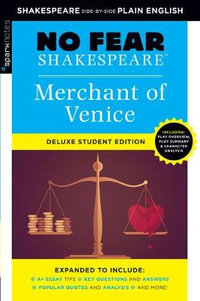English society in the late seventeenth and early eighteenth centuries was fascinated by deception, and concerns about deceptive narratives had a profound effect on reading practices. Kate Loveman''s interdisciplinary study explores the ways in which reading habits, first developed to deal with suspect political and religious texts, were applied to a range of genres, and, as authors responded to readers'' critiques, shaped genres. Examining responses to authors such as Defoe, Swift, Richardson and Fielding, Loveman investigates reading as a sociable activity. She uncovers a lost critical discourse, centred on strategies of ''shamming'', which involved readers in public displays of reason, wit and ironic pretence as they discussed the credibility of oral and written narratives. Widely understood by early modern readers and authors, the codes of this rhetoric have now been forgotten, to the detriment of our perception of the period''s literature and politics. Loveman''s lively book offers a striking new approach to Restoration and eighteenth-century literary culture and, in particular, to understanding the development of the novel.
Industry Reviews
'In this elegant, informed, and daring study, Kate Loveman presents an argument that lies athwart the critical preoccupation with the genealogy of the novel. Loveman shows that what we call the novel emerged from within a rich culture of tale-telling in which fictions of all kinds were endemic to coffee house circles, to a world in which detecting shams endowed social prestige and which therefore encouraged skeptical reading within an essentially ludic culture, whose habits persisted even after the emergence of sentimental modes of apprehension.' Richard Kroll, University of California, Irvine, and author of Restoration Drama and 'The Circle of Commerce': Tragicomedy, Politics, and Trade in the Seventeenth Century (2007) '... an impressive work of scholarship...' Review of English Studies 'Sometimes common sense, especially when joined by excellent research, a clear head, and a prose style resolutely devoted to informing rather than impressing, rises to the level of genius. Reading Fictions is in this class, and is required reading for students of both Augustan irony and the early novel.' Eighteenth-Century Fiction '... learned, audacious, and gracefully written... No student of Defoe or Swift [...] can afford to neglect Loveman's extremely powerful chapters on those writers. From this point forward, any study of the novel's Restoration and early eighteenth-century origins which fails to pick up on Loveman's ideas will be fit only for posterior uses.' Modern Language Review '... Loveman has [succeeded] in surveying so broad a field and distilling such a cogent argument from her evidence.' Royal Stuart Journal 'Loveman's arguments are subtle and always alive to the nuances of particular biographical circumstances and publishing history; a great deal of the material is unfamiliar, and that which is familiar is seen in a new and interesting way.' Modern Philology 'This scholarly and elegantly written book does not only provide new approaches to canonical texts, but helps to answer pressing questions about the prevalence of parody, impersonation, and dissimulation in late-Stuart culture.' Notes and Queries
























